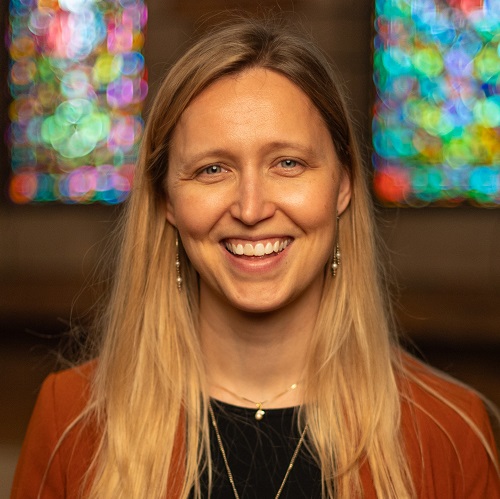Commentary on Exodus 32:7-14
The foundation from which to build your sermon for this week is Exodus 32:1, appearing seven verses before today’s assigned pericope.
“Come, make for us gods.”
“Come, make for us those who will go before us.”
“As for the one who brought us up from Egypt, we do not know what has become of him.”
This first verse illuminates the two central issues of this Bible story: first, the people have anchored their faith to Moses, and not to God. This point is easy to recognize: in Exodus 3:8 and 17, God specifically claims that it will be by divine action that the people will be brought out of Egypt. In Exodus 13:3, Moses specifically tells the people that they were brought out of Egypt by divine action. And yet, by Exodus 17:3, the people have completely lost sight of God’s presence in their salvation. They are dying of thirst in the wilderness. They are scared. In their fear, they turn to their embodied representative of God (Moses) and say, “Why did you bring us up out of Egypt, to kill us and our children and our livestock with thirst?” (see also Exodus 14:11).
Preachers will note that fear is the basis of the people’s dire misunderstanding at this moment. The second central issue of the story stems from the people’s fear as well. In their fear, the people have not only mistaken who has saved them, but they have misunderstood that very salvation. This point is visible in Hebrew, but less obvious in English translations. It involves two Hebrew verbs: alah, “to go up,” and yatza, “to go out.” Both verbs are used by God to describe the exodus event. Alah suggests a movement from one place (Egypt) to another, namely, a place where the people can freely serve and worship God. In some places, yatza functions synonymously with alah, describing a simple movement out of Egypt: “The Egyptians shall know that I am the LORD, when I stretch out my hand against Egypt and bring the Israelites out (yatza) from among them” (Exodus 7:5). Yatza, however, also functions as a technical term in the book of Exodus. Exodus 21 describes in detail the protocol for when a slave leaves or goes out (yatza) from their bondage. In this way, yatza is explicitly linked not only to the movement from one place to another, but to the movement out of a position of bondage to one of freedom. Yatza describes liberation from slavery. God uses yatza several times in just this way, describing the liberative aspect of the exodus act. Most notably, yatza occurs in this function in the Exodus version of the Ten Commandments: “I am the LORD your God, who brought you out (yatza) of the land of Egypt, out of the house of slavery; you shall have no other gods before me” (Exodus 20:2; see also Exodus 6:6, 7, 13:3, 14).
Here, however, is the crux of the issue: when describing the exodus act, the people never refer to their liberation. In their descriptions of the exodus, the only fact that takes precedence is how they were brought out of Egypt to another place. Never do they mention slavery (Exodus 14:11; 16:3; 17:3; 32:1). Never do they mention their freedom. The people fixate on the fact that they seem to have been brought from one frightening place to one that is even worse. They completely lose sight of the fact that God brought them out of bondage to slavery.
Fear has short-circuited the people’s senses. Yes, they were awestruck by the rumble of God’s voice on the mountain. But it seems in today’s text that they have spent too long festering in their fears. Dwelling in fear causes the people to lose touch with their bodies. Losing touch with their embodied reality causes them to lose touch with their God.
Wise preachers will avoid the easy pitfall of making light of the people’s predicament. The Sinai wilderness is no joke. Dying of thirst in the desert is a constant possibility. Dying of hunger might take longer, but it would be just as deadly. Either possibility is very real, especially if the only one who seems to know how to lead them through the wilderness has disappeared into an inferno. Death in the desert would not be a pretty process. The healthy adults would have to sit and watch as the children, the elderly, and the sick died first. Fear may be confusing their senses, but the fear is not itself unwarranted.
Wise preachers will also avoid emphasizing a metaphorical understanding of slavery in this text and ignoring its real, lived reality. Modern descendants of slaves continue to pay the price of an institution that baked its evils into the groundwork of many societies. An emphasis on metaphorical slavery that ignores the real history of slavery in your respective country does a disservice both to preacher and congregation.
Instead of condemning the people for losing heart at the first sign of trouble, preachers would do well to be empathetic with their very real fear while also noticing what that fear provokes. In moments of triumph, the people clearly point to God and God’s saving action (think Miriam and all of the women in Exodus 15). When fear overwhelms them, their senses get muddled and they can no longer sense their Savior, remember what their Savior has done, nor experience what their Savior is calling them to do. Is there a similar process taking place in your congregation today? How might you as a preacher empathize with your folks’ very real fears while also speaking the truth of what that fear is doing in their lives?


September 11, 2022